- Expand Environmental Section
- Archaeology & Paleontology
- Environmental Bulletins
- Environmental Documents for NDOT Projects
- Environmental Guidance Library
- NDOT Facilities
- Fish & Wildlife
- Hazardous Materials
- Historic Bridge Marketing
- NEDS
- NEPA Assignment
- Noise & Air
- Expand Pollinators
- Historic Preservation
- Roadside Development
- Stormwater Management
- SWPPPTrack
- Tecumseh Historic Square
- Training & Certification
- Wetlands

Importance
Production of food and forage is largely dependent on the work of pollinating organisms, such as bees, birds, bats, and butterflies. However, these organisms are in decline nationwide. Continued losses of pollinating organisms threaten agricultural production, maintenance of natural plant communities, and the important services provided by those ecosystems, such as carbon cycling, flood and erosion control, and recreation. President Barack Obama directed federal agencies (and state agencies by extension) to take action on behalf of pollinating organisms.
NDOT Activities to Support Pollinators
-
- Roadside seed mixtures are planted during highway construction projects. Mixtures that are planted away from highway shoulders are comprised of approximately 10-20% native wildflower seed, by weight. Species planted are suited to the region of Nebraska in which the construction project occurs, and may serve as food and habitat for pollinators.
- NDOT has funded a research project with the University of Nebraska to investigate wildflower islands (areas of dense wildflower seeding) and their effect on pollinating species populations.
- NDOT programmatic documents have been revised to recommend mowing dates and frequencies that minimize interference with pollinator life cycles and foraging needs.
- NDOT staff participate in efforts led by Nebraska pollinator interest groups, to develop action plans and policies to support pollinator life cycles and develop habitat.
- NDOT is a cooperator with the Nebraska Game and Parks Commission on a pollinator habitat establishment project on Nebraska’s Cowboy Trail: http://outdoornebraska.gov/cowboytrail/
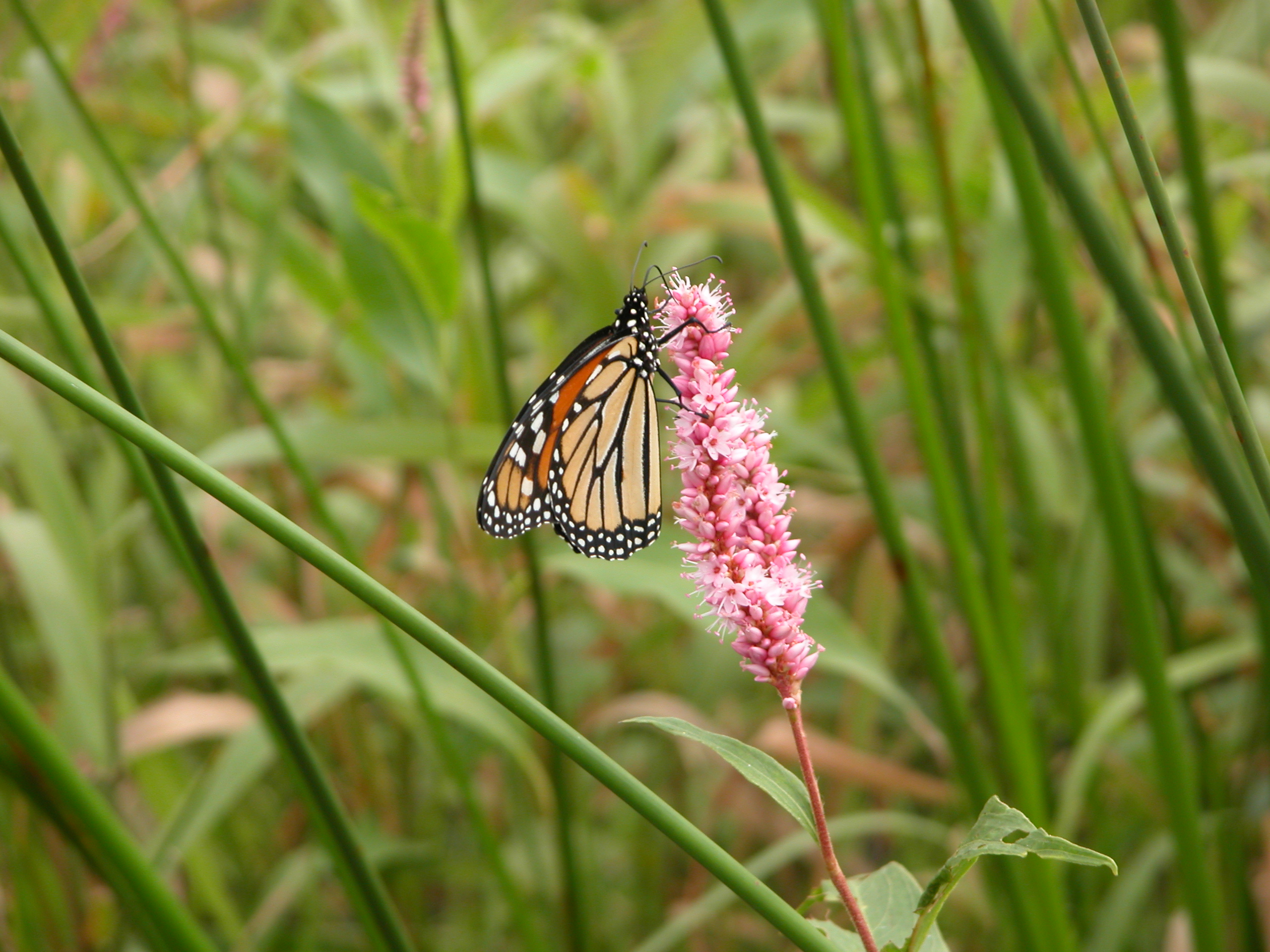

Resources
- Federal Highway Administration, Pollinators and Roadsides: Best Management Practices for Managers and Decision Makers
- FHWA – Ecosystem and Vegetation Management
- Minnesota Department of Transportation
- Washington State Department of Transportation
- Indiana Department of Transportation
- Virginia Department of Transportation
Publications
- NDOT Roadside Vegetation Establishment and Management Guidelines (revised 2017)
- Fixing America’s Surface Transportation Act (“FAST Act”, December 2015), Section 1415 “Administrative Provisions to Encourage Pollinator Habitat and Forage on Transportation Rights-of-Way.”
- National Strategy to Promote the Health of Honeybees and Other Pollinators (May 19, 2015)
- Presidential Memorandum (June 2014) Creating a Federal Strategy to Promote the Health of Honey Bees and Other Pollinators.
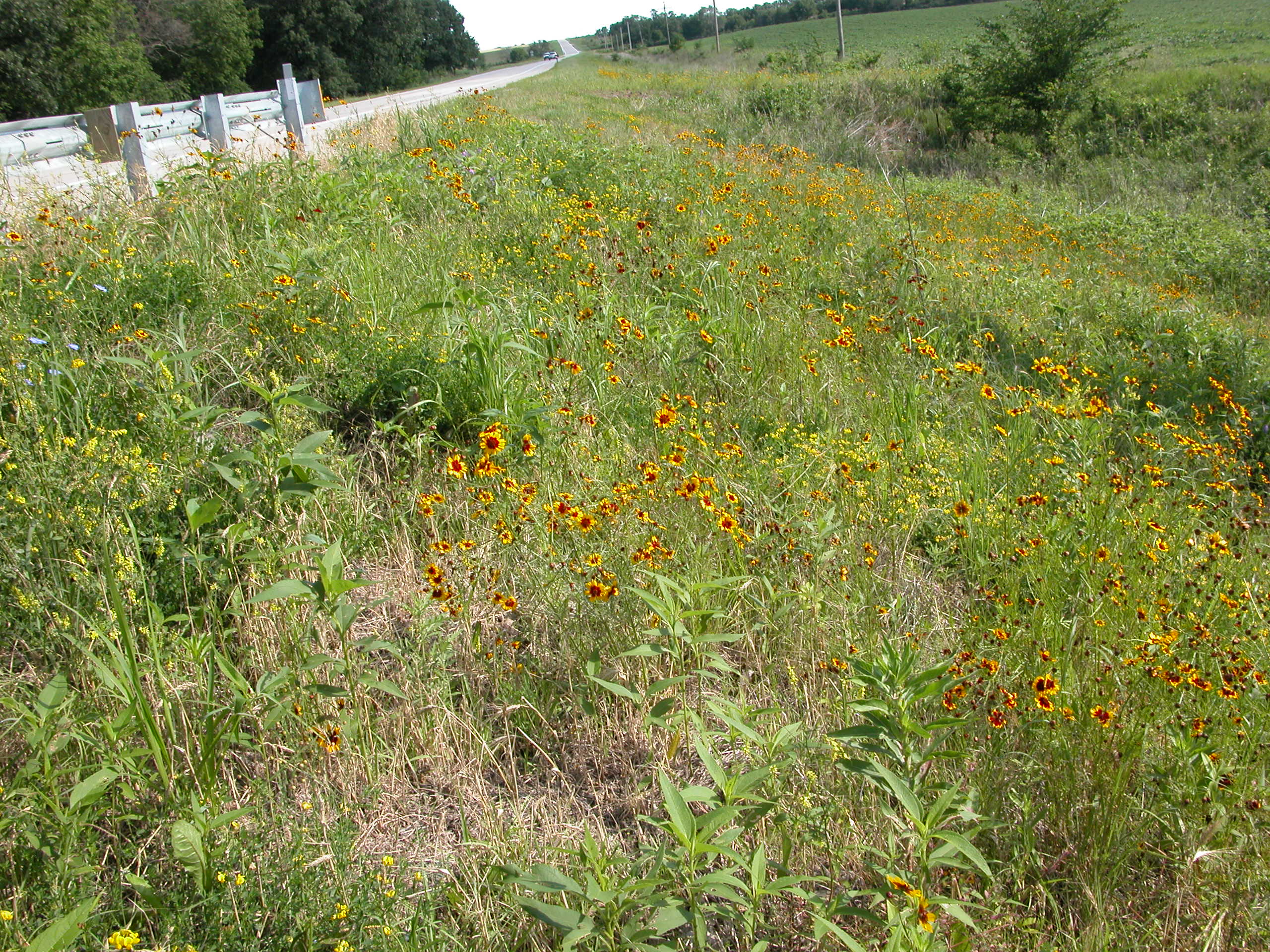
Flowery roadside. Courtesy of Carol Wienhold, NDOT.
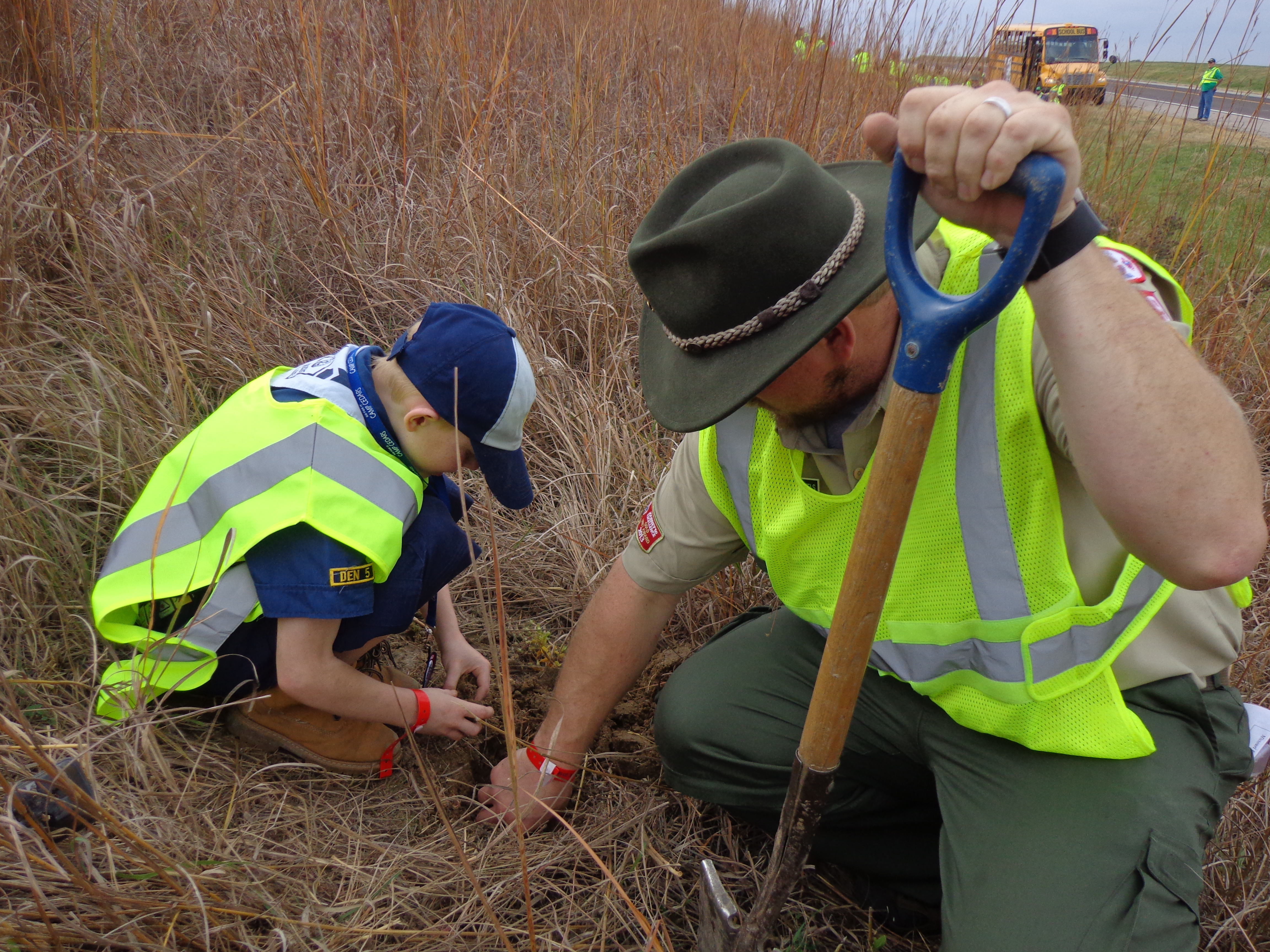
Boy Scout Jamboree participants planting milkweed seedlings on NDOR right-of-way. Courtesy of Mike Groenwald, NGPC.
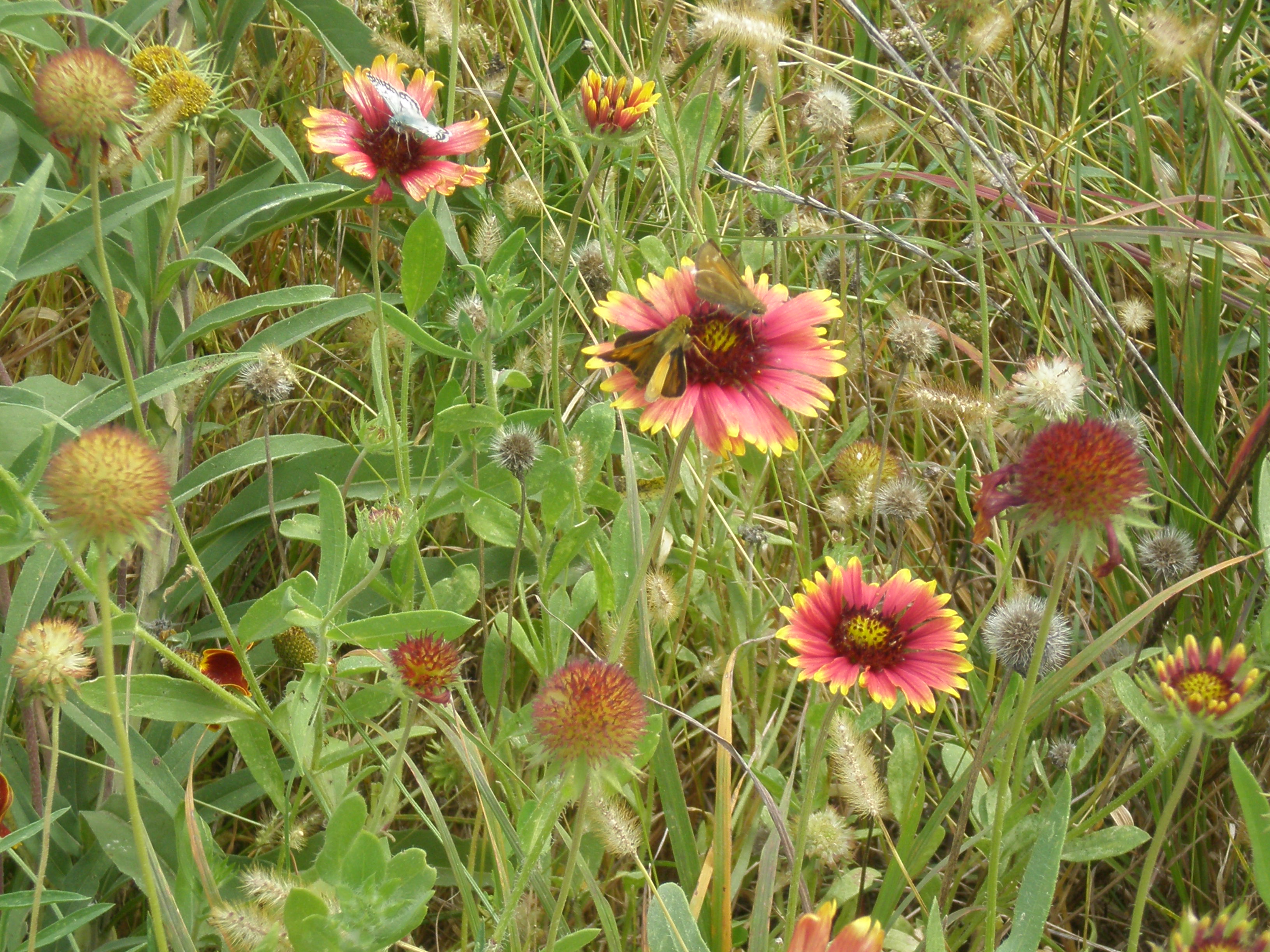
Moths on Gaillardia. Courtesy of Pat Sward, NDOT.
